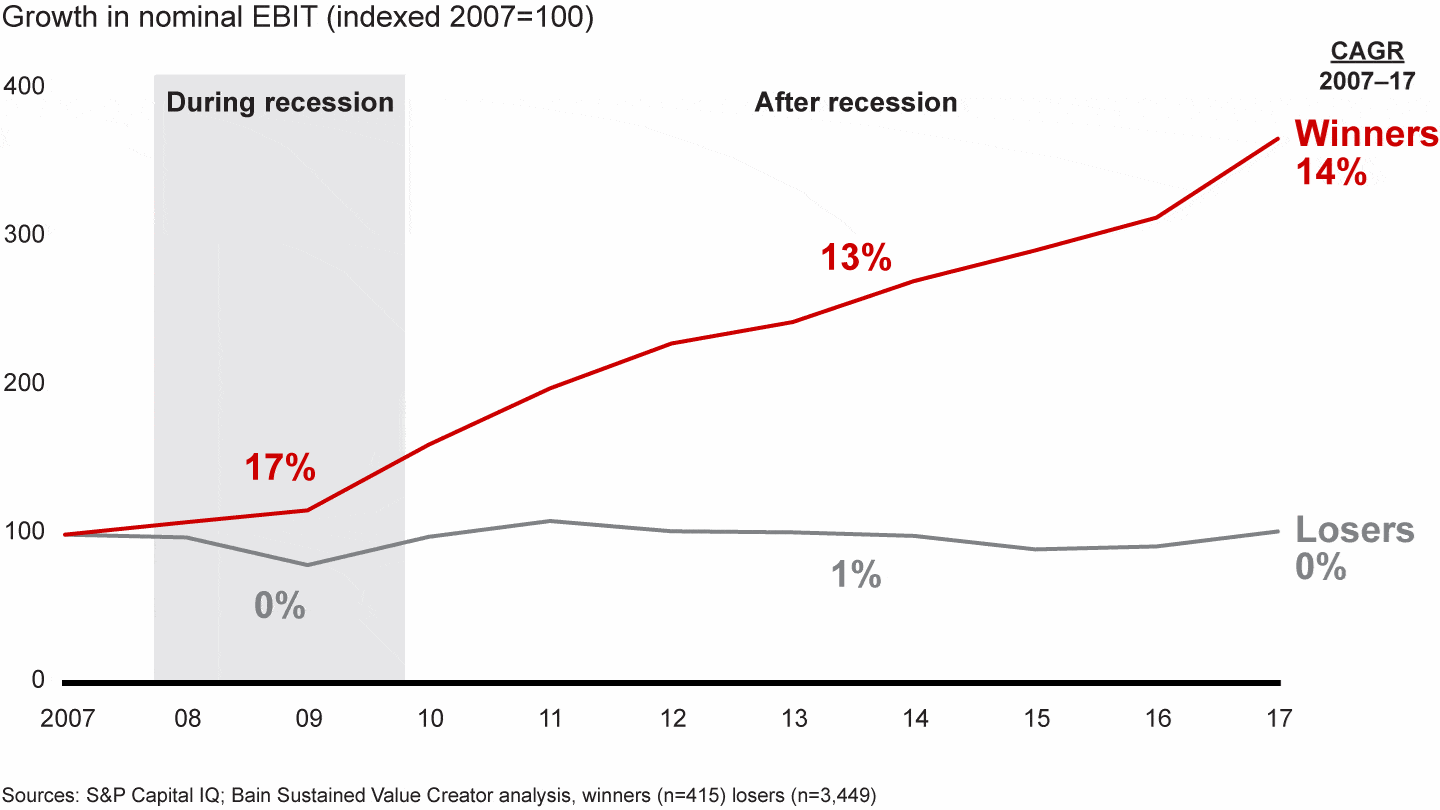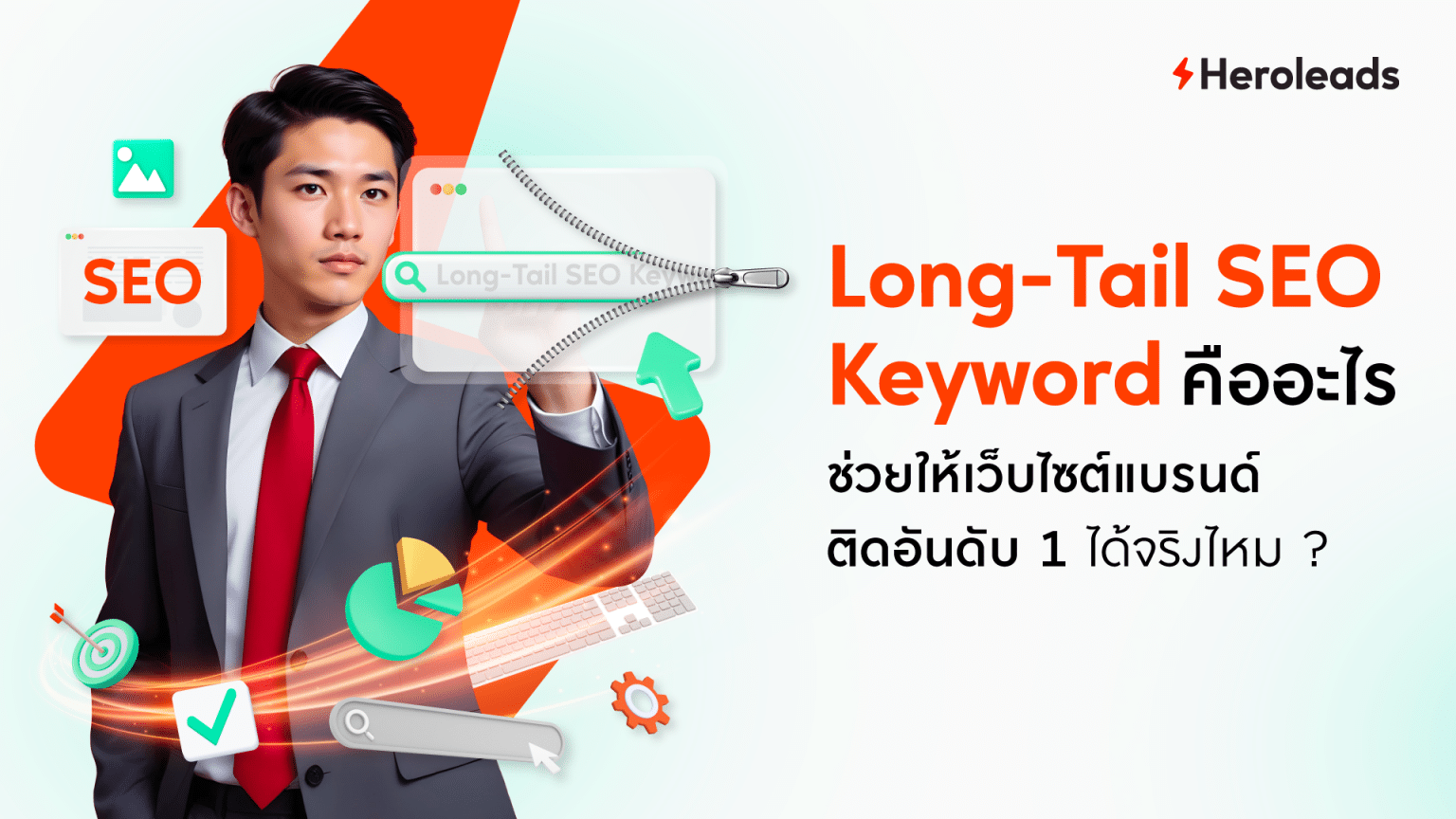พลิกแนวคิด ธุรกิจปรับตัวอย่างไรเมื่อโลกเปลี่ยน

บทความน่าอ่าน
The only certainty in business is change
โลก(ธุรกิจ)นี้ไม่มีอะไรแน่นอน
ธุรกิจทุกอย่างในโลกนี้เผชิญกับการเปลี่ยนแปลงอยู่ตลอดเวลา เรียกได้ว่า “ความไม่แน่นอน” นี่แหละคือความแน่นอนของโลกธุรกิจ
ในอดีต การเปลี่ยนแปลงอาจใช้เวลาเป็นสิบ ๆ ปี แต่เดี๋ยวนี้มันสามารถเกิดขึ้นได้เพียงชั่วพริบตา ซึ่งก็เป็นผลมาจากเทคโนโลยีที่รุดหน้าไปอย่างรวดเร็ว
ที่เห็นได้ชัด เช่น เทคโนโลยีโมบายอินเตอร์เน็ตที่เพิ่งเกิดขึ้นในช่วง 20 ปีที่ผ่านมา ซึ่งพลิกโฉมหน้าการทำธุรกิจไปอย่างสิ้นเชิง
ยิ่งตอนนี้ที่เกิดการแพร่ระบาดของโคโรนาไวรัสไปทั่วโลก ทุกธุรกิจแทบจะต้องประเมินสถานการณ์กันแบบสัปดาห์ต่อสัปดาห์ ธุรกิจไหนสามารถปรับตัวได้เร็วก็อยู่รอด ส่วนธุรกิจไหนที่ไม่ยอมปรับตัวก็เสี่ยงที่จะหายไปจากตลาด
ทั้งหมดทั้งมวลนี้ชี้ให้เห็นว่า เทคโนโลยีและบริบทแวดล้อมที่เปลี่ยนแปลงไป คือโจทย์ที่ท้าทายสำหรับผู้ประกอบการในปัจจุบัน
It’s about adaptability
เก่งไม่เก่งอยู่ที่ปรับตัวเป็นหรือเปล่า
เมื่อเราพูดถึง “ความสามารถในการปรับตัว” เราหมายความรวมทั้งการปรับตัวใน “เชิงรับ” และ “เชิงรุก”
ผู้นำธุรกิจที่เห็นว่าการปรับตัวเป็นเรื่องสำคัญ มักจะเปิดกว้างสำหรับความคิดใหม่ ๆ ตั้งคำถามอยู่เสมอว่า สิ่งที่เป็นอยู่ทุกวันนี้ “ดีที่สุด” แล้วหรือยัง และไม่กลัวที่จะเริ่มต้นทำอะไรใหม่ที่แตกต่างไปจากเดิม
ผู้นำที่พร้อมปรับตัวจะกระตุ้นให้ทีมตั้งคำถาม และนำโซลูชันส์ใหม่ ๆ มาใช้ เพื่อขับเคลื่อนธุรกิจไปในทิศทางที่ดีขึ้น ซึ่งไม่เพียงช่วยให้รับมือกับการเปลี่ยนแปลงได้อย่างรวดเร็วเท่านั้น แต่ยังทำให้สามารถคาดการณ์ถึงความเปลี่ยนแปลงที่จะเกิดขึ้นในอนาคตได้ด้วย
Learning + Agility = Adaptability
เรียนรู้ให้ไวและลงมือให้เร็ว
ถ้าจะบอกว่า ความสามารถในการปรับตัวคือหัวใจสำคัญที่ทำให้ธุรกิจอยู่รอดและเติบโตต่อไปได้ในโลกแห่งความเปลี่ยนแปลง
คำถามคือ…อะไรล่ะที่ทำให้องค์กรหนึ่ง ๆ มีความยืดหยุ่น และสามารถปรับตัวได้อย่างรวดเร็ว? และเราจะออกแบบองค์กรของเราให้เป็นแบบนั้นได้อย่างไร?
“ความสามารถในการปรับตัว” จริง ๆ แล้วมันคือความรวดเร็วในการเรียนรู้ว่า อะไรเวิร์ก-ไม่เวิร์ก สำหรับองค์กรของเรา
บริษัทที่ปรับตัวเก่ง ส่วนหนึ่งเป็นเพราะเขาไม่กลัวที่จะเปลี่ยน ไม่กลัวที่จะทดลองสิ่งใหม่ และไม่กลัวที่จะล้มเหลว
การที่ Amazon สามารถขึ้นมาครองตำแหน่งเจ้าตลาดได้ ส่วนหนึ่งก็มาจากความสามารถในการปรับตัว
Jeff Bezos เปิดให้บริการประมูล Amazon Auction ตามมาด้วย zShop ทั้งสองอย่างนี้เป็นตัวเบิกทางไปสู่การเกิดขึ้นของ Marketplace ยักษ์ใหญ่ คอนเซ็ปต์ของทั้งสองอย่างนี้ยิ่งใหญ่มาก เรียกได้ว่า อุตสาหกรรมนี้มีจุดเริ่มต้นมาจากเขา แต่ด้วยจิตวิญญาณของการปรับตัว เขาเรียนรู้จากการทดลองทำ ประเมิน และปรับใช้ให้เหมาะสมกับสถานการณ์
ในเคสของ Amazon และ Jeff Besoz นั้น เขาใช้เวลาลองผิดลองถูกอยู่นานหลายปี แต่ในสถานการณ์ปัจจุบัน โลกธุรกิจไม่อนุญาตให้เราใช้เวลานานขนาดนั้นในการลองผิดลองถูก และเราถูกบีบให้วิ่งไปข้างหน้า “เร็ว” ยิ่งกว่าที่เคย
อย่าเพิ่งเข้าใจผิด พวกคุณ (เช่น คนที่อยู่ในอุตสาหกรรมท่องเที่ยว) อาจจะคิดว่า ธุรกิจของคุณจะวิ่งไปข้างหน้าได้ยังไง ในเมื่อมีข้อจำกัดมากมายเต็มไปหมด อย่าลืมว่าในกลุ่มธุรกิจเดียวกันกับคุณ ก็ยังมีคนที่ดำเนินธุรกิจต่อไปอยู่ ถ้าคุณเลือกจะไปต่อ คำถามคือ เราสามารถเรียนรู้อะไรได้บ้างจากวิกฤติในครั้งนี้ และทำอย่างไรให้เราออกวิ่งได้เร็วกว่าคู่แข่ง
In the long term we are not all dead
ปรับตัวให้ไว แล้วเราจะเป็นผู้ชนะในระยะยาว
Bain.com เผยแพร่บทความชิ้นหนึ่งออกมาเมื่อพฤษภาคม 2019 ที่ชี้ให้เห็นว่า ธุรกิจที่ปรับตัวก่อนและระหว่างที่เกิดวิกฤติเศรษฐกิจปี 2008-2010 เมื่อวิกฤติคลี่คลายพวกเขากลายเป็น “ผู้ชนะ” ส่วนธุรกิจที่ไม่ลุกขึ้นมาทำอะไรเลยกลายเป็น “ผู้แพ้” ไปในท้ายที่สุด เพราะผู้ชนะรักษาการลงทุนอย่างต่อเนื่องโดยเอา data มาหาช่องทางและขยายโอกาสในการทำธุรกิจ ในขณะที่ผู้แพ้เอาแต่อยู่เฉย

ความแตกต่างนี้ยิ่งเห็นได้ชัดขึ้นในระยะยาว อ้างอิงจากงานวิจัยของ Forrester ในปี 2015 ซึ่งชี้ให้เห็นว่า บริษัทที่ประสบความสำเร็จ พวกเขามี DNA 3 อย่างที่เหมือนกัน ได้แก่
- วัฒนธรรมที่ส่งเสริมให้เกิดการทดลองทำ (A culture of experimentation)
- การให้ความสำคัญกับลูกค้าเป็นที่หนึ่ง (Customer focus)
- การตัดสินใจบนพื้นฐานของข้อมูล (Data-driven decisions)
เมื่อเดือนธันวาคม ปี 2019 Forrester วิจัยเรื่องนี้อีกครั้ง และผลที่ได้ก็ยังเหมือนเดิม ข้อสรุปของเรื่องนี้คือ บริษัทที่ดำเนินธุรกิจโดยให้ความสำคัญกับ 3 ส่วนข้างต้น จะประสบความสำเร็จในระยะยาวมากกว่าบริษัทอื่น ๆ
Experimentation, customer focus, and data-driven decisions
ทดลอง, โฟกัสที่ลูกค้า, ใช้ data ตัดสินใจ
เทคโนโลยีดิจิทัลทำให้เราสามารถติดตามตรวจสอบ และทำความเข้าใจพฤติกรรมลูกค้าได้รวดเร็วยิ่งกว่าเก่า
หากคุณเปิดรับวัฒนธรรมที่ส่งเสริมการทดลอง ธุรกิจของคุณจะเรียนรู้ด้วยการลงมือทำ มีการนำไอเดียใหม่ ๆ มาใช้ และระบุว่าไอเดียไหนที่ช่วยธุรกิจได้จริง
เพื่อให้มั่นใจว่า วัฒนธรรมดังกล่าวคือหัวใจในการดำเนินธุรกิจของคุณจริง ๆ ไม่ใช่แค่แนวความคิด คุณต้องตรวจสอบให้แน่ใจว่า
- ฝ่ายบริหารเข้าใจกระบวนการทดลองอย่างลึกซึ้ง
- การทดลองของคุณมีเป้าหมายชัดเจนถูกต้อง
- ผลลัพธ์ที่ได้ต้องวัดผลได้จริง
- การทดลองเป็นหลักการที่ทุกคนยึดถือ
ที่ Heroleads Asia เราเองก็ใช้การทดลองในการหาคำตอบให้กับปัญหาเชิงเทคนิคต่าง ๆ เช่น เวลาที่เราอยากจะรู้ว่า “ข้อความอะไรทำให้คนคลิกมากขึ้น” เราก็ทดลองข้อความหลาย ๆ แบบ ถ้าบอกว่า ข้อความที่แสดงส่วนลดจะทำให้คนคลิกมากขึ้น เราก็จะทดลองเพื่อพิสูจน์ให้เห็นว่ามันเป็นอย่างนั้นจริง ๆ
วิธีการทดลองของเรา สอดคล้องกับโมเดลที่เรียกว่า “Agile Growth Process” ซึ่งหลักการทำงานของมันคือ :

- การทดลองต้องประกอบด้วย การวิเคราะห์ (Analyze), จัดลำดับความสำคัญ (Prioritize) , ตรวจสอบความถูกต้อง (Validate)
- วิเคราะห์ : ทำความเข้าใจลูกค้า โดยสังเกตจากการตอบสนองของพวกเขา
- จัดลำดับความสำคัญ : ให้น้ำหนักกับสมมติฐานที่มีความเป็นได้มากที่สุด
- ตรวจสอบความถูกต้อง : นำผลทดสอบมาประเมินดูอีกครั้ง เพื่อทำให้ดียิ่งขึ้น
- ถ้าสมมติฐานที่ได้ทำให้เราไปถึง business goal ที่วางไว้ นั่นแปลว่าเราได้ insight ที่ทำให้ธุรกิจเติบโตได้จริง ๆ
ทั้งหมดนี้อาจฟังดูง่าย แต่ในการนำโมเดลนี้มาใช้จริง ๆ นั้น ต้องอาศัยมากกว่าการประชุมระดมความคิด แต่ต้องมีการทำอย่างเป็นระบบ ทำอย่างต่อเนื่อง และต้องอาศัยความเข้าใจที่มีต่อลูกค้าในทุก touch points จริง ๆ
7 คำถาม ธุรกิจของคุณ มีความสามารถในการปรับตัวแค่ไหน
- เราพยายายามที่จะทำความเข้าใจลูกค้าของเราหรือไม่?
- ลูกค้าของเราเปลี่ยนไปอย่างไรบ้างในปัจจุบัน ?
- พฤติกรรมไหนที่เปลี่ยนไป และอาจคงอยู่ต่อไปอีก?
- เราจะพลิกเกม สร้างโอกาส จากความเปลี่ยนแปลงนี้ได้อย่างไร?
- เรามีวิธีการวัดผลเป้าหมายที่ถูกต้องหรือไม่?
- เราจัดความสำคัญของสิ่งต่าง ๆ ได้อย่างถูกต้องหรือไม่?
ต้องการข้อมูล insight เพื่อช่วยธุรกิจ?
เราจัดทำ e-book “Scaling Your Business in The New Normal : พลิกเกมสร้างกำไรให้ธุรกิจยุค New Normal” เพื่อให้ข้อมูลที่ช่วยให้ธุรกิจของคุณปรับตัวรับมือโลกยุคใหม่หลังโควิด-19 ได้ดีขึ้น ดาวน์โหลดฟรีที่นี่


